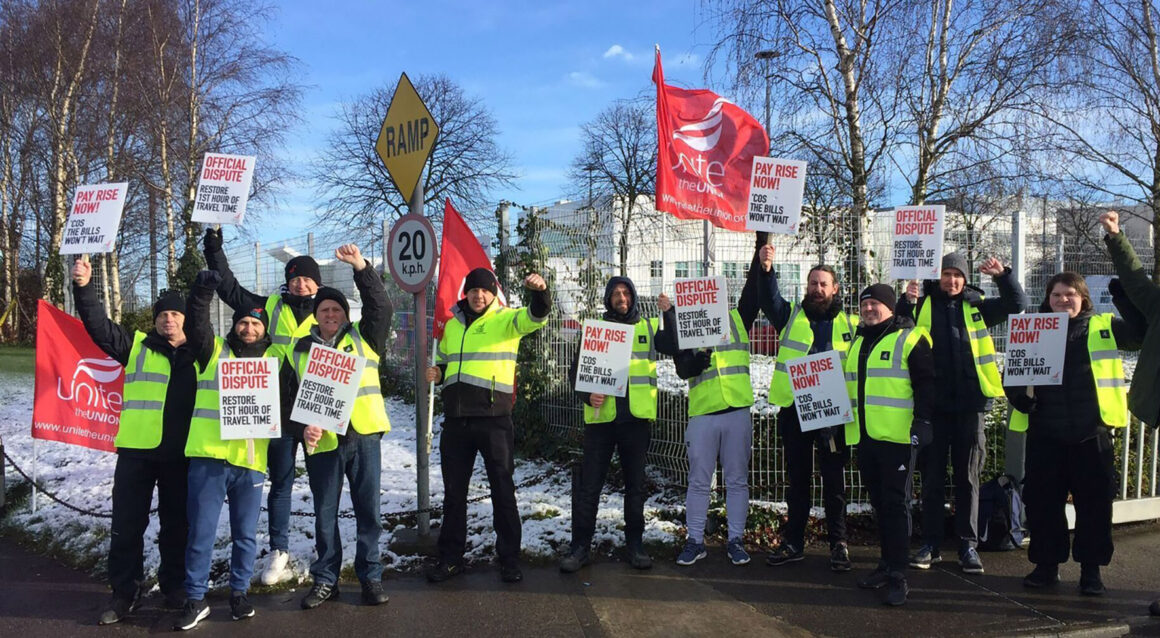By Matt Waine
In early December, mechanical workers (plumbers, fitters and welders) who are members of Unite voted to accept a pay increase worth 9.9% over two years. This will see the basic rate for mechanical workers increase from €26.32/hour to over €29/hour. Unlike previous pay deals, the union is free to ballot members at any stage, should inflation further erode workers’ take home pay.
A key factor in this dispute was the crippling effects of the cost of living over the past two years that saw workers’ incomes shrink as inflation drove prices for basic commodities to record levels. The anger at spiralling costs for housing, energy and food was further fueled by the announcement of massive spikes in profits posted by major construction contractors – proof that the main driving force behind inflation was not global political instability and war, but rather the greed of employers who sought to profit off instability and war.
However, the most important factor was a union that was willing to go the distance in delivering a real pay rise for its members. Where other unions were content to settle for the crumbs from the bosses table, Unite deployed a strategy to mobilise and engage their members to fight for more. The deal agreed by Unite was 4.5% more than the initial Labour Court Recommendation.
Emboldened union members
The threat of industrial action was not mere shadow-boxing. Mechanical workers had already shown their willingness to strike in March 2023 with a one-day shut down on the Pfizer and Intel projects. And it was this action that forced the employers to make the initial offer of a 3% increase this year, followed by a paltry 1.9% next year.
Emboldened by the strike action in March, members overwhelmingly rejected that offer and instead directed the union to ballot all members across the sector. The ballot was a resounding 92% in favour of strike action across 30 companies.
Faced with the prospect of the entire construction sector being disrupted, the employers caved in, offered talks and conceded the 9.9% increase.
Movement needs radical reorientation
For 40 years, the trade union movement has been in decline. Membership has plummeted to 25% density, whereas in the 1960s over 60% of workers were represented by unions. Social partnership, and a plethora of anti-union legislation, has sucked much of the life out of our movement. For many workers, unions offer only a legacy of betrayal and sell out. An existential crisis confronts the trade union movement.
The culture of social partnership needs to be abandoned. What replaces it is what needs to be discussed and considered by all serious union activists. The election of Sharon Graham as General Secretary of Unite (covering the UK and Ireland) has seen the union pivot back to the workplace and the shop floor. This strategy has seen union membership jump by 30,000 over the last year. Since Graham’s election, Unite has been involved in over 700 disputes, with an 80% win rate.












